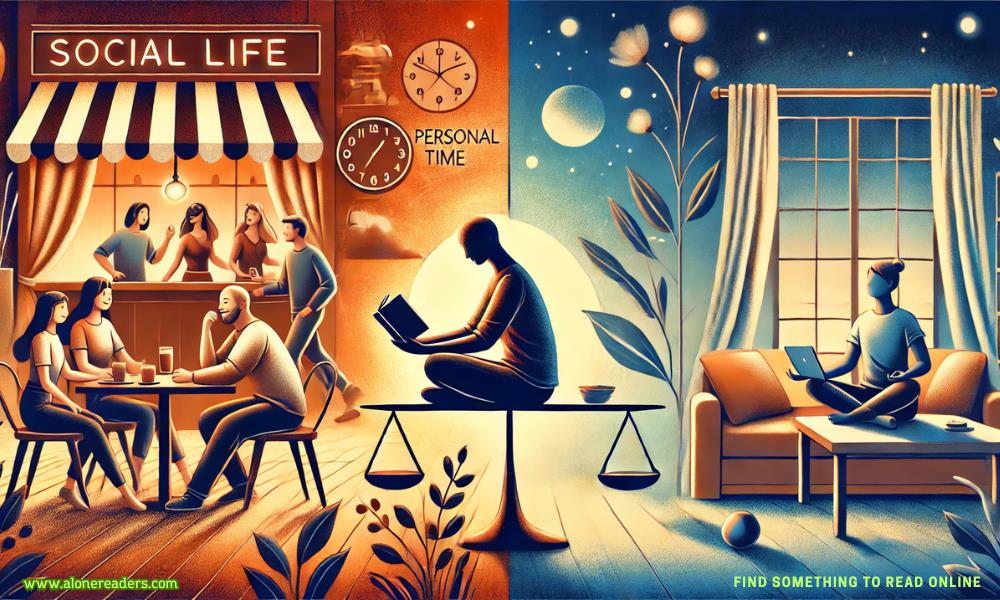Page 12 of Always You
Even if I had to drop to my knees and beg.
Chapter Seven
JAZZ
The moisturizer Docgave me made my fingers slippery, so I sat on my bed, cross-legged with my hands turned palms upright on my knees, ensuring the sticky stuff dried on my skin and didn’t get wiped on my pants.
I’d slept last night—fitfully, not quite relaxed even though I’d shoved the chair back under the door handle and dragged a cabinet against the doors to the small yard.
Sleeping rough in Chicago, I’d found myself in places I never imagined I’d end up. Some nights, it was an alleyway off Lower Wacker Drive, where the city noise was a constant hum, and the chill from the river seemed to seep into my bones. Other nights, I tucked myself into the shadows of an abandoned building in Englewood, where the silence was more unsettling than the cacophony of downtown.
On the rare occasions I got a bed in a shelter, like the one on the outskirts of the Loop, it didn’t provide the respite I’d hoped for. Surrounded by dozens of others, each of us wrapped in our own stories of despair, the air was thick with the weight of shared misfortune. The constant coughing, the restless shuffling, and the occasional outburst from someone lost in theirown nightmares, made sleep elusive. The proximity to so many others, all of us in various stages of coping or not coping, was a stark reminder of how far I had fallen.
I remember one night at a shelter near Halsted Street, lying on a thin mattress that did little to cushion the hard floor beneath. I’d found myself wedged between two strangers, and the air was heavy with the smell of unwashed bodies and cheap disinfectant. Someone nearby had been muttering in their sleep, a low, continuous drone that filled the room, and I couldn’t sleep. The irony didn’t escape me. Out there, I was alone, but I was unseen, unjudged, a ghost drifting through the night. In the shelters, I faced the reality of my situation through the eyes of others, a reality I wasn’t ready to accept.
Doc hadn’t stared at me in judgment.
Neither had Alex.
I pressed my fingers together—the tackiness of the ointment had eased—and as my belly rumbled, I wondered if maybe it was okay to venture out and see if there was food.
How many other people would be out there?
Would Alex be with them?
I moved the chair from the door, hoisted my backpack over my shoulder, then put it back down on my neat, corners-tight bed.
Then, I picked it up.
And put it down.
Why am I taking it with me?I have a key to the door.
Who else had a key to the door? Did Alex say it was just me? Why can’t I remember?
A knock at the door jolted me from my thoughts, and I hesitated. “Hello?”
“Morning, Jazz! It’s Doc,” came a voice from the other side. “Breakfast is out here if you feel up to it. Or I could bring you something if you’d rather eat alone?”
The offer caught me off guard. It wasn’t just the mention of food, but the underlying gesture, the implication of care I hadn’t felt in a long time. I stood there, frozen, unsure how to respond. The idea of stepping out, of facing others over a meal, seemed daunting. Yet the thought of Doc bringing breakfast to me, acknowledging my isolation, felt equally hard.
I cleared my throat, my voice sounding rough to my ears. “I’ll come out,” I said, a compromise between my desire for solitude and the pressing need to not alienate those trying to help me—even if one of them was Alex.
I unlocked the door and opened it a crack. “No one else has a key to my room, right?” I asked, and Doc smiled at me.
“There’s an emergency key for me.” He thumbed in the direction of the medical room. “It’s locked away.”
I glanced back at the bed, the bag sat there, torn for a moment. Then, I stepped out through the smallest crack I could manage before locking the door. Doc waited and walked with me to the kitchen, a couple of people inside, but not the heaving mass I’d expected.
“Elena,” Doc said, gesturing to a woman in her late forties with a calm, motherly demeanor that seemed to fill the room. She was at the stove, flipping pancakes, a stack already piled high on a plate beside her. Her smile was warm, inviting, and she offered a gentle nod in my direction, her eyes crinkling in a way that made me feel seen, yet not pressured. “She’s one of our amazing support team, comes in for breakfast. Elena, meet Jazz.”
“Hi, Jazz,” Elena said and waved the spatula.
“Hi, Elena,” I replied after a pause.
“That’s Tom,” Doc said. Tom was a young man with a shock of unruly hair and an easygoing grin. He was at the table with a bowl of cereal and a mug of coffee.
“Hey, Jazz,” he said.
- Beneath the Burn by Pam Godwin
- Unhinged by Jane Henry
- Praise Me: Soldier by Jessa Kane
- Irresistible Temptation by Tory Baker
- The Brat and the Bodyguard by S.E. Law
- Seduced By the Mafia Don by Flora Ferrari
- However You Want Me by W. Winters
- Mountain Protector by Stella Banks
- Kissing My Brother's Best Friend by Lena Little
- Tempted By the Devil by Sienne Vega
- Husband for the Holidays by Dani Collins
- Arranged by Piper Stone
- Redemption by Tori Fox
- Inked Soul by Jade Marshall
- Speed by R.J. Scott
- Dark Souls by Aura Rose







